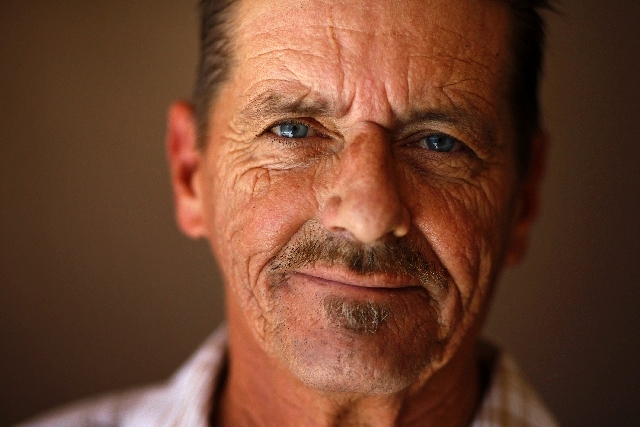Court program gives HOPE to addict
When a man is in jail, again, facing drug charges, again, he will agree to almost anything to get out.
This is what Thomas Carney did a year and a half ago. He signed some forms and agreed to something and he walked out of jail.
Every time he was released – he’s been arrested more than 30 times over the years – he told himself he would stop, change his life.
He kept going back, though. Heroin’s pull was too strong.
But this time he had help. It came from the very people who’d put him in jail.
“We have a responsibility to look at the whole problem and say, ‘Is there anything we can do?’” said Heidi Almase, a Las Vegas Municipal Court judge.
Almase runs the city’s Habitual Offender Prevention and Education Court, called HOPE court. It’s funded by a grant from the Nevada Administrative Office of the Courts.
Its aim is to find people like Carney and help get them off drugs, find a place to live, get a job and stop cycling through the system.
“I could easily load it up with more people if there were more funds,” Almase said. This year’s grant is about $100,000.
It saves money, in the end, the judge said.
It costs about $210 a day to house an inmate, she said. It costs an average of $3,200 to $3,500 to get a person through the HOPE Court program. That’s the equivalent to 15 or 16 days in jail. The average participant has been arrested 13 times, she said.
HOPE court started in 2005, and Almase took over in 2011. She said 95 people have been through it in the last three years.
A police officer, prosecutor, judge or someone else within the system identifies someone who keeps getting arrested for misdemeanor crimes. Panhandling, drugs, loitering, that sort of thing.
“There has to be an addiction component,” the judge said. “Almost all of the people in the program have been homeless at one time or another.”
If someone enters the program, they agree to a 180-day suspended sentence, and they must stay off drugs. They’re coached in how to get a job, find a place to live and get their lives back in order.
“They’re just tired,” Almase said. “They’re really, really tired of being on the street.”
If they mess up – Almase said six of the 32 people currently in the program have done so – they have to serve that 180-day jail sentence.
“By the time they graduate, they’re living on their own,” the judge said. “They have a job. When they walk out the door, they’ve had significant care, so we know they can make it.”
She said the program has reduced arrests by 94 percent for its 95 participants.
Carney, the former heroin addict, said he was on drugs for years before he got addicted, spiraled down, and ended up strung out and dependent on his friends for a place to live.
He came to Las Vegas about 30 years ago from Cleveland, where he’d developed a methamphetamine habit.
He kept doing drugs here, met a girl, got married, had a kid, did more drugs, got jobs, lost those jobs, did more drugs and then lost control of everything.
His marriage broke up, he had no job, no place to live.
“It was always drugs,” he said. “Drug houses or living with someone on drugs.”
He kept getting arrested. Drug paraphernalia, petty larceny, all minor crimes.
Every time, he’d say that was it. And then he’d get released, and he would start thinking about how horrible jail is.
He’d tell himself, “I deserve one good high for the hell I went through.”
But one high led to another, of course. He got hooked or painkillers, and then heroin.
Finally, in April 2012, the people from HOPE Court approached him. Sure, he said, I’ll sign those papers.
Slowly, he caught on. He stayed off drugs, got lots of counseling, even started working as the house manager at the halfway house where he’s been living.
“Now,” he said, “I have a life.”
He’s reconnected with his ex-wife, and his daughter.
He and two other participants formally graduated this week, meaning they’re done.
But Carney said he’s going to stick around. He wants to use everything he’s learned, he said, to help other people.
Contact reporter Richard Lake at rlake@reviewjournal.com or 702-383-0307.



















